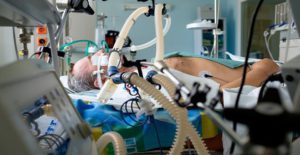The Fundamental Ethical Flaw in Jiankui He’s Alleged Gene Editing Experiment
By Julian Savulescu
Chinese researcher Jiankui He of Shenzhen claims to have gene edited two healthy embryos, resulting in the birth of baby girls born this month, Lulu and Nana. He edited a gene to make the babies resistant to HIV. One girl has both copies of the gene modified while the other has only one (making her still susceptible to HIV).
On July 29, 2017, He uploaded a copy of his lecture on YouTube, “Evaluating the safety of germline genome editing in mouse, monkey and human embryos“. He finishes the lecture (see 11:22) arguing that experimentation in humans should be “slow” and with “caution”, remarking that “a single case of failure might kill the entire field”, as in the case of the death of Jesse Gelsinger. He closes with a picture of Gelsinger.
Gelsinger died during a somatic (not germline) gene therapy trial nearly 20 years ago. Early gene therapy trials were conducted with an emphasis on participant consent. A somatic cell gene therapy was developed for ornithine transcarbamylase deficiency, a disorder of nitrogen metabolism. The condition comes in two forms: mild, with normal life expectancy and management by diet, and severe, which is lethal in the first year. Researchers, acting on the advice of ethicists, decided to conduct the first trials in adults with the mild form of the disease as they were capable of consenting. Gelsinger consented at age 18 and died due to a catastrophic immune reaction. He would have had a normal life expectancy in the absence of the intervention.
At the time, I wrote this paper. I argued the main failing of that experiment was failure to minimise expected harm. The design of the trial was flawed; it should have been conducted in infants with the severe form of the disease, as this would have resulted in less expected harm.
Read More »The Fundamental Ethical Flaw in Jiankui He’s Alleged Gene Editing Experiment

